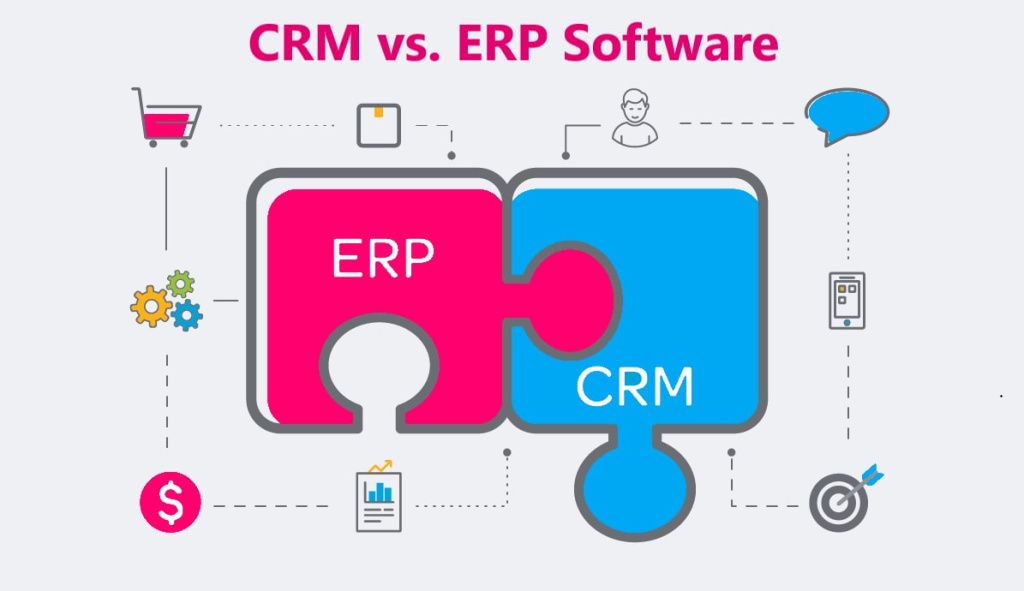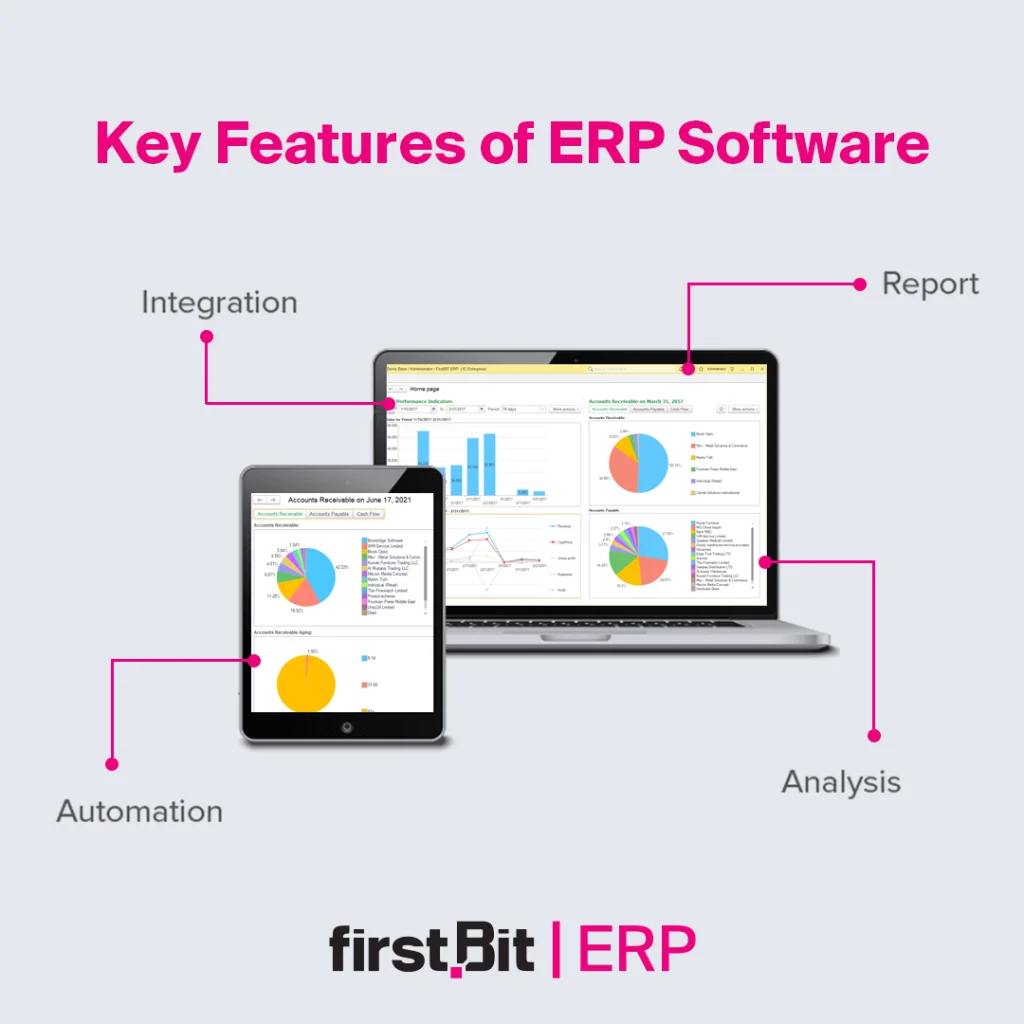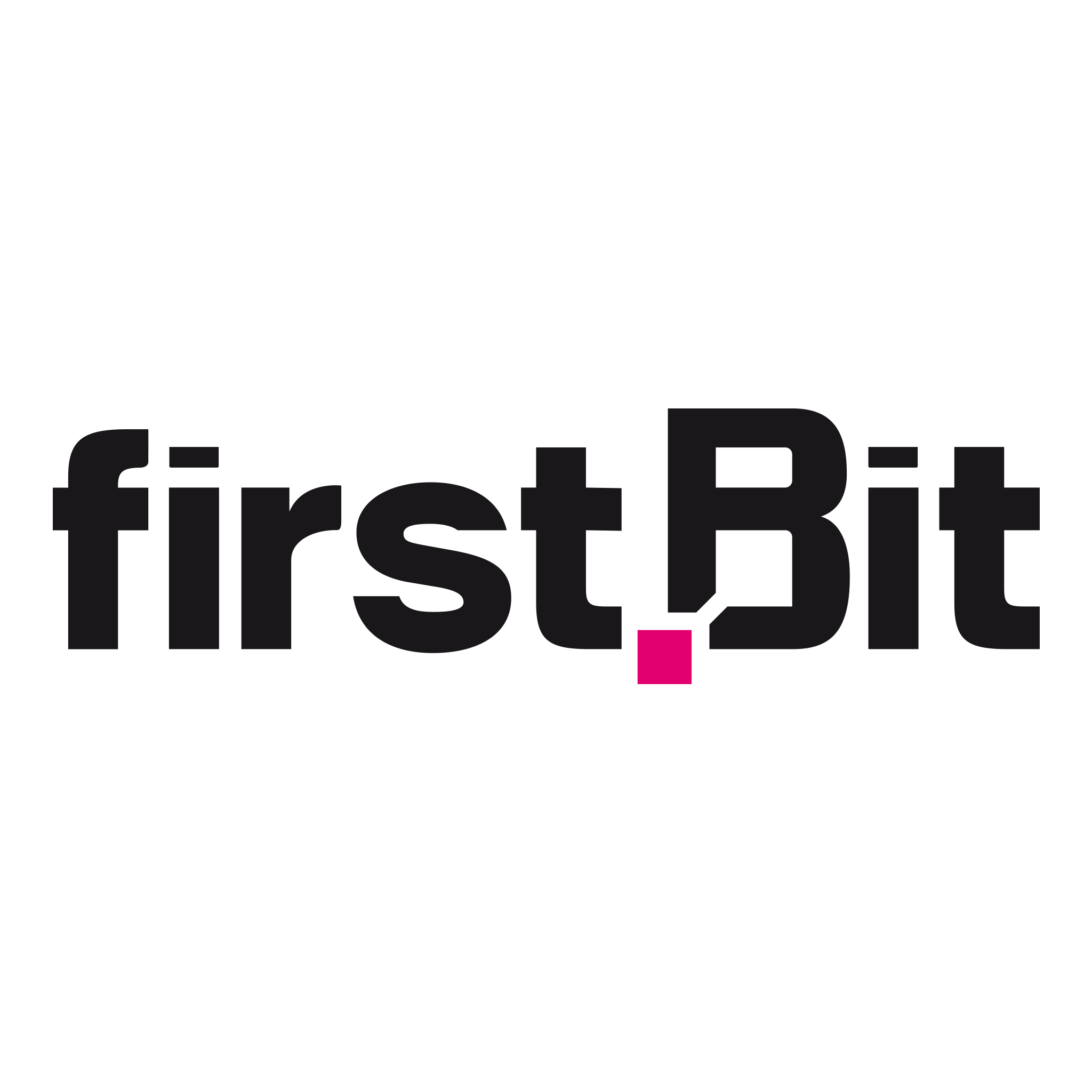

Modern businesses require versatile solutions that help them better understand their customers, provide improved visibility into their operations, keep their workforce motivated, and give them a competitive advantage.
Two leading business solutions that most businesses invest in or should invest in are ERP and CRM solutions.
In this comprehensive ERP Vs CRM guide, we will discuss some key CRM and ERP topics, such as their definitions, functions, and differences between CRM and ERP.
Let’s get started without further ado.
What are ERP and CRM?
ERP and CRM are both novel solutions that help companies improve their day-to-day operations and manage customer relationships, respectively. Let's look at the differences between ERP and CRM.
What is ERP?
ERP, which stands for Enterprise Resource Planning, is a software system that centralizes all the information in your organization by streamlining and connecting all your business processes and systems from start to finish.
The systems and processes can range from CRM, accounting, supply chain management, spreadsheets, and more. In addition, ERP also improves data visibility in areas such as finance, project management, and manufacturing.
Again, there are two types of ERP:
A. On-Premise ERP, and
B. Cloud ERP
As one might expect, cloud ERP is a more convenient, secure, and cost-effective solution than on-premise ERP. It eliminates the need for additional software, hardware, and IT support staff.
Overall, ERP is a solution that enables organizations of all sizes and industries to significantly reduce costs, improve business insight, collaborate more effectively, and increase efficiency.
What Is CRM?
CRM, which stands for Customer Relationship Management, is a system that enables businesses to manage their leads, existing customers, and prospects in the most efficient and effective way possible in order to extract value. These systems help businesses analyze customer interactions and collect data throughout the customer lifecycle.
The ultimate goals of CRM software are:
-
Improve business-customer relationships
-
Manage leads and prospects more effectively
Besides that, by investing in the right CRM system, a company can enjoy a range of benefits, such as improved data management, enhanced communication, improved lead capture, and increased visibility into performance.
ERP and CRM both appear to be promising and necessary business systems, right? So, which would you pick or invest in?

Which Is Better for Business: CRM or ERP?
To be honest, deciding between CRM and ERP is equivalent to deciding between water and air for a living. Both these software are necessary for businesses and play a critical role.
On the one hand, CRM assists you in managing your existing customers, prospects, and leads, whereas ERP assists you in integrating data from all systems and streamlining information flow.
We recommend that if you are just starting out or have a small business that does not use many technologies and tools, you proceed with CRM only.
However, if you are a mid-sized business or a well-established large enterprise that employs a variety of applications and systems, we recommend that you invest in ERP because it is a more advanced solution capable of managing complex supply chains and other day-to-day operations.
Let us now compare the functions of ERP and CRM to better understand these solutions and their roles in business.
ERP vs CRM System Comparison
Although the number and types of ERP and CRM features and functions vary by vendor, the following are some of the most common and key functions and features that most vendors provide. Let's take a quick look at each one.
Key ERP Functions
The following are the most common ERP features and functions.

A. Financial Management
One of the most important functions of an ERP system is financial management or bookkeeping. The system includes modules that allow you to manage the financial aspects of the business. It could be a vendor payment, an employee salary, or customer subscription fees, among other things.
The tool keeps track of payables and receivables and provides complete visibility into your company's financial health. Furthermore, advanced ERP solutions assist businesses with a variety of other finance-related activities such as tax calculation, financial forecasting, and cash flow analysis.
B. Human Capital Management
Another important function of an ERP (Enterprise Resource Management) system is human resource management. While CRM assists with customer management, ERP is an excellent software system for managing human capital at a company.
The system allows you to manage multiple human resource-related tasks such as hiring, onboarding, training, attendance management, leave management, and more. Besides, more advanced ERP systems like FirstBit enable you to manage employee financial operations such as taxes and statutory information.
C. Supply Chain Management
ERP systems can also help with supply chain management. The system can assist you in automating demand planning, providing real-time visibility into resource utilization, and managing warehouse resources.
In addition, workflow automation contributes to lower overhead and operational costs, enabling you to better monitor, review, and modify supply chain efforts and activities in real-time. Moreover, the system improves efficiency across multiple departments involved in supply chain management.
D. Inventory Management
Inventory management is the fourth major function of an ERP system. The system provides real-time visibility into the organization's inventory. Using this data, management can make more informed and timely decisions, restock their inventory, and make accurate forecasts to meet future demand without having excess or low stock.
In addition, the system provides critical information about:
-
High-performing products.
-
Landed costs of goods sold (COGS).
-
Territory-based sales.
Overall, an ERP software system provides end-to-end inventory management as well as detailed and real-time analysis of inventory stock.
E. Business Intelligence
ERP, just like CRM (Customer Relationship Management), is an information tracking tool. It collects data from all systems and processes that are integrated with the ERP software system and provides management with a 360-degree view of what is going on in the organization at various fronts, such as supply chain, inventory, human resources, and more.
This information eventually enables different levels of decision-making in the organization. Besides that, historical ERP data provides insights into past performance, allowing management to forecast future possibilities and make the right decisions at the right time.
These are the five primary functions of ERP. Now, let's take a look at the key CRM functions that most of the vendors offer.
Key CRM Functions
CRM systems, as previously stated, aim to improve business relationships with customers and effectively manage leads and prospects. Most CRM functions and features primarily focus on customers, prospects, and leads. Let's look at some of CRM's key functions and features.
A. Contact Management
Contact management, as the name implies, is the process of storing, organizing, and tracking digital records of your customers, prospects, and leads. Contact management through CRM can be a beneficial process for both employees and the organization as a whole.
For example, it will enable you to better understand your contacts' needs, behavior, and other aspects. You can also monitor customer interactions and integrate the findings into your marketing campaign. Similarly, lead scoring allows you to determine which prospects are more likely to convert into customers.
B. Lead Management
Lead management is another key CRM function. For the uninitiated, a lead is a person or an organization interested in your product or service and likely to purchase it. With the right CRM system, companies can significantly increase lead conversion rates.
CRM assists you with several lead-related activities, including:
-
Identifying quality leads from a pool of leads
-
Analyze and track key lead information
-
Nurturing promising leads through omni-channel communication
-
Maintain close contact with leads at multiple touchpoints
Meaning, CRM can be a potential modern business technology that assists you in converting leads into customers.
C. Database Management
In addition to lead and contact management, CRM can also assist you with database management. It is obvious that scattered or unorganized data is useless, regardless of how much data you have. To extract information from data, it must be organized and segmented based on various characteristics.
A CRM software system empowers you to achieve this. The tool will collect data about customers, prospects, and leads from various channels and store it in a single repository that employees with relevant authority can access.
You can also use this information to know your customers better, plan your marketing campaigns more effectively, and increase lead conversion rates.
D. Campaign Management
Campaign management is another important function that most of the top CRMs offer. Simply put, campaign management is the planning, implementation, tracking, and analysis of a marketing campaign. With CRM, you can segment customers and plan specialized campaigns based on their requirements and category.
Besides that, you can also run the campaign and track its success. If you find that the campaign is not yielding the expected results, you can make the necessary changes and adjust its course with the help of real-time performance analysis.
E. Analytics & Reporting
The fifth major function of a CRM software system is analytics and reporting. As we all know, reports are critical for any business or campaign because they inform us about whether the strategy is working, what went wrong in the previous marketing campaign, and so on.
When you invest in the best CRM, you get all these valuable insights into your business or campaign. This information can be very beneficial because it can help you identify and close gaps in your strategy and steer your efforts in the right direction.
These are the five primary functions of a CRM (Customer Relationship Management) system. As we can see, the software can assist us with all dimensions of customer management, including data management and tracking and planning marketing campaigns.
CRM vs. ERP Software: Final Thoughts
As we can see, CRM and ERP are both very promising and necessary enterprise solutions for modern companies.
CRM assists organizations, particularly sales teams, in establishing long-term relationships with customers, attracting prospects, converting leads, and more. Additionally, the organized data in the CRM repository allows you to better understand your customers and prospects and plan effective campaigns that promise higher lead conversion.
Similarly, ERP systems can be an ideal solution for integrating various systems and processes, such as finance, manufacturing, supply chain, and others. Establishing an agile, centralized architecture also helps streamline and automate the workflow.
Also, the software significantly contributes to cost savings, improved collaboration, and optimal resource utilization.
So, what would you do? Would you rather invest in an ERP system or CRM software?
Well, we recommend that if you are a new or small-scale business, you should invest in CRM first and then in ERP later. However, if you are a well-established company or an eCommerce platform with multiple applications in place, investing in ERP would be a wise decision. If you want to take it a step further, you should consider ERP and CRM integration services.
Getting Started with FirstBit ERP System
If your company is engaged in construction or trading, we recommend that you invest in FirstBit ERP software. FirstBit is a feature-rich, user-friendly, and cost-effective modern ERP solution.
5 Reasons why you should consider using FirstBit ERP
It comprises multiple features & functions for HR & Payroll, Sales, CRM, Finance & Accounting, VAT, Project management, and Inventory Management. The system is versatile and appropriate for businesses of all sizes, including small, medium, and large.
To learn more, visit FirstBit website.
of your processes and scale your business with FirstBit ERP now!








